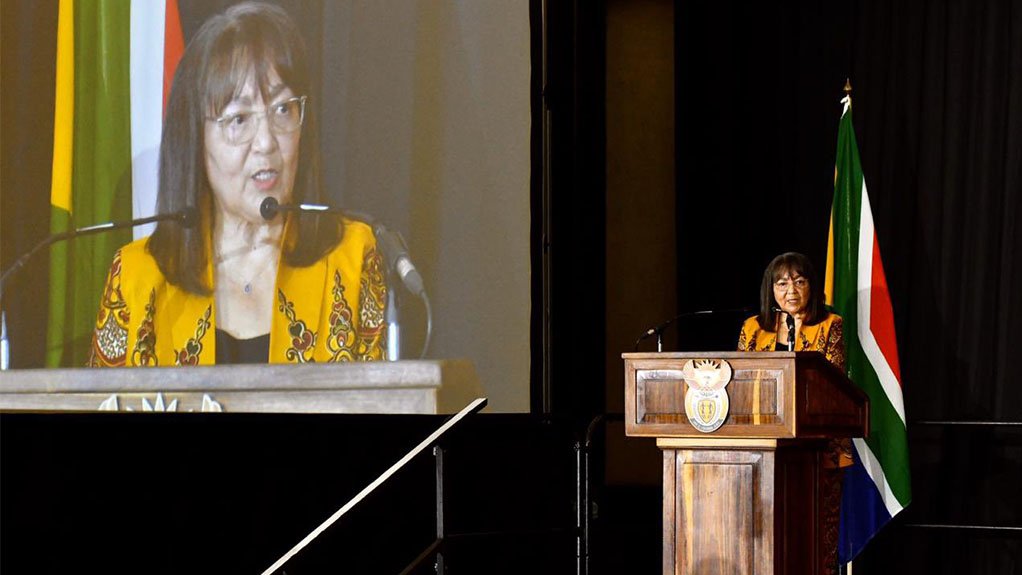Minister of Public Works and Infrastructure Patricia de Lille says the government plans to iron out obstacles in the implementation of infrastructure projects. MPs, however, want more clarity on what measures of accountability will be in place to prevent corruption. President Cyril Ramaphosa earlier announced plans to roll out 276 infrastructure projects.
The government's infrastructure development programme, which forms part of the president's economic recovery plan, has been criticised by opposition Members of Parliament for being thin on the details.
de Lille on Tuesday addressed the National Assembly on the infrastructure plan.
The government has already attracted R340-billion worth of commitments from investors during the sustainable infrastructure symposium held in June.
So far, 62 projects have been identified as part of the first phase, including water and sanitation, agro-processing, an emergency power programme as well as transport projects, Fin24 previously reported.
Last week, a round table was held with Ramaphosa, government officials, private financiers and development finance institutions, where 28 projects were discussed.
During her address to Parliament, De Lille stressed that the government was tending to concerns raised by multilateral institutions about the programme – such as the need for a credible project pipeline that is ready and bankable, the need for a long term focused infrastructure plan and the need to address fragmentation in infrastructure development.
She said the government was working on unblocking various hinderances - whether technical, financial or administrative – to the implementation of projects.
"Government's role is to create conducive conditions for the private sector to invest," De Lille explained.
Apart from private sector investment, the project is to be funded through the government's Infrastructure Fund, which includes R100-billion pledged over a 10-year period, funding from development finance institutions and multilateral institutions, and even an infrastructure bond instrument, which makes use of alternative funding sources that promote green efficiency infrastructure solutions to support the country's climate change mitigation strategy.
She added the announcements on specific projects would only be made once there is "active construction and onsite activity".
De Lille also said measures are in place to "mitigate corruption" in the infrastructure investment programme.
For example, an independent company has been appointed to do due diligence on all processes, she told MPs.
"We must deal with the issue of corruption to regain the confidence of our society, of South Africans of investments. We must show government is capable to turn the tide," said De Lille.
She said the government is working with the Special Investigating Unit to "detect and prevent" corruption in both the public and private sector.
But Democratic Alliance member Samantha Graham raised concerns on the lack of clarity of the funding of the projects and what the anti-corruption strategy is. This was echoed by other opposition party MPs.
Economic Freedom Fighters MP Annacleta Siwisa took a swing at the state's lack of capacity to successfully build schools, clinics, roads, and water and sanitation, among other projects.
"The more concerning issue is that government has misguided faith in the private sector," said Siwisa, referring to the government's intentions to unlock further investment from the private sector.
She explained that state capacity must first be built in order to deal with large scale projects.
Inkatha Freedom Party member Mthokozisi Nxumalo enquired about whether the plan made provisions for the impact of the Covid-19 pandemic, which had brought the construction sector to a halt earlier this year.
"What are the mitigation factors to manage uncertainty, given the blow the construction industry took due to the pandemic?" he asked.
He noted the government's plans to collaborate with the private sector, but warned of the risk of corruption as was evident during the state capture years, warranting the need for high due diligence.
"The country needs to remain credible in the international community. We need transparency and accountability when it comes to the execution of projects," he said.
He added that there needs to be "clear disciplinary procedures and sanctions" created, which are without prejudice in incidents of corruption.
Rehash of old plans
Freedom Front Plus MP Philippus van Staden criticised the government for "wasting time and money" as the infrastructure development plan is a rehash of the Expanded Public Works Programme (EPWP).
"The infrastructure investment plan is nothing different to what the EPWP was supposed to do."
Wayne Thring of the African Christian Democratic Party referred to remarks by former president Thabo Mbeki, about the lack of detail on the funding of the programme.
He also called for more details on the specifics of the project pipeline.
"We need detail on the rollout of the pipeline of projects or the programme will remain a pipedream," he said.
Responding to MPs, De Lille said the government has committed to accountability – to both Parliament and the "people of the country".
Updates would be provided once a month via a Cabinet statement, she said.
EMAIL THIS ARTICLE SAVE THIS ARTICLE
To subscribe email subscriptions@creamermedia.co.za or click here
To advertise email advertising@creamermedia.co.za or click here











